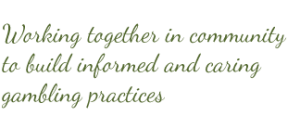Critics sound alarm over online gambling as Halifax casino revenues dwindle
Critics of the gambling industry say they’re concerned about a recent move toward online gambling, especially in light of the Halifax casino’s uncertain future.
Members of the GRINS board are interviewed in this CBC article: https://www.cbc.ca/news/canada/nova-scotia/online-casino-gambling-revenues-1.5932404
Elizabeth Stephen, a counselling therapist who works with people with gambling addictions, said news that the Nova Scotia government has cleared the way for online casino-style gambling is “pretty significant.”
“What’s behind that?” said Stephen. “Is it because the physical casino is in such decline and perhaps is even going to close down? Is it to replace that revenue?”
Stephen said the people she treats in her practice often start gambling in a physical casino, but later move to other venues, such as bars with video lottery terminals.
“I think [casinos] are the foundation in some places for the start of gambling, and the kind of glamour of gambling and the excitement of gambling,” she said.
Stephen said most people who come to her with gambling addictions have become addicted to VLTs, although a few have been addicted to table games such as poker or blackjack.
“They get to the point where they’re spending way too much time there and more money than they can afford to lose. And so often their first step is to exclude themselves from the casino. Often, though, they don’t do that until they maybe have reached bankruptcy,” she said.
Elizabeth serves on the GRINS board.
Bruce Dienes said it shows a need for the province to move on from the gambling business, which was legalized in Nova Scotia in 1995.
“Here is a business model that’s failing, that isn’t meeting the needs of the customers. And rather than acknowledging that and moving on to a different kind of business — a different way to entertain, a different way to raise funds — they’re trying to increase the risk and increase the access for something that people clearly don’t want,” he said.
Dienes said gambling is “psychologically manipulative” and he disagrees with the government’s stance that online gambling can be done safely.
“This is something that’s been created by government policy,” he said.
Dienes is the chair of Gambling Risk Informed Nova Scotia (GRINS), a non-profit organization with the goal of reducing harms related to gambling.
Will Shead, an associate professor of psychology who primarily researches gambling, said he’s doubtful that limitations can be placed on online gambling that would keep people safe.
“We don’t really know what effect this is going to have on people. You can make arguments and say this is how it’s going to work, but it could potentially be disastrous for people to have access to such high betting limits online,” said Shead, who teaches at Mount Saint Vincent University in Halifax.
Shead is also a board member of Gambling Risk Informed Nova Scotia, whose members are particularly concerned about high-stakes wagers online that could lead a gambler to lose thousands of dollars per hour.

